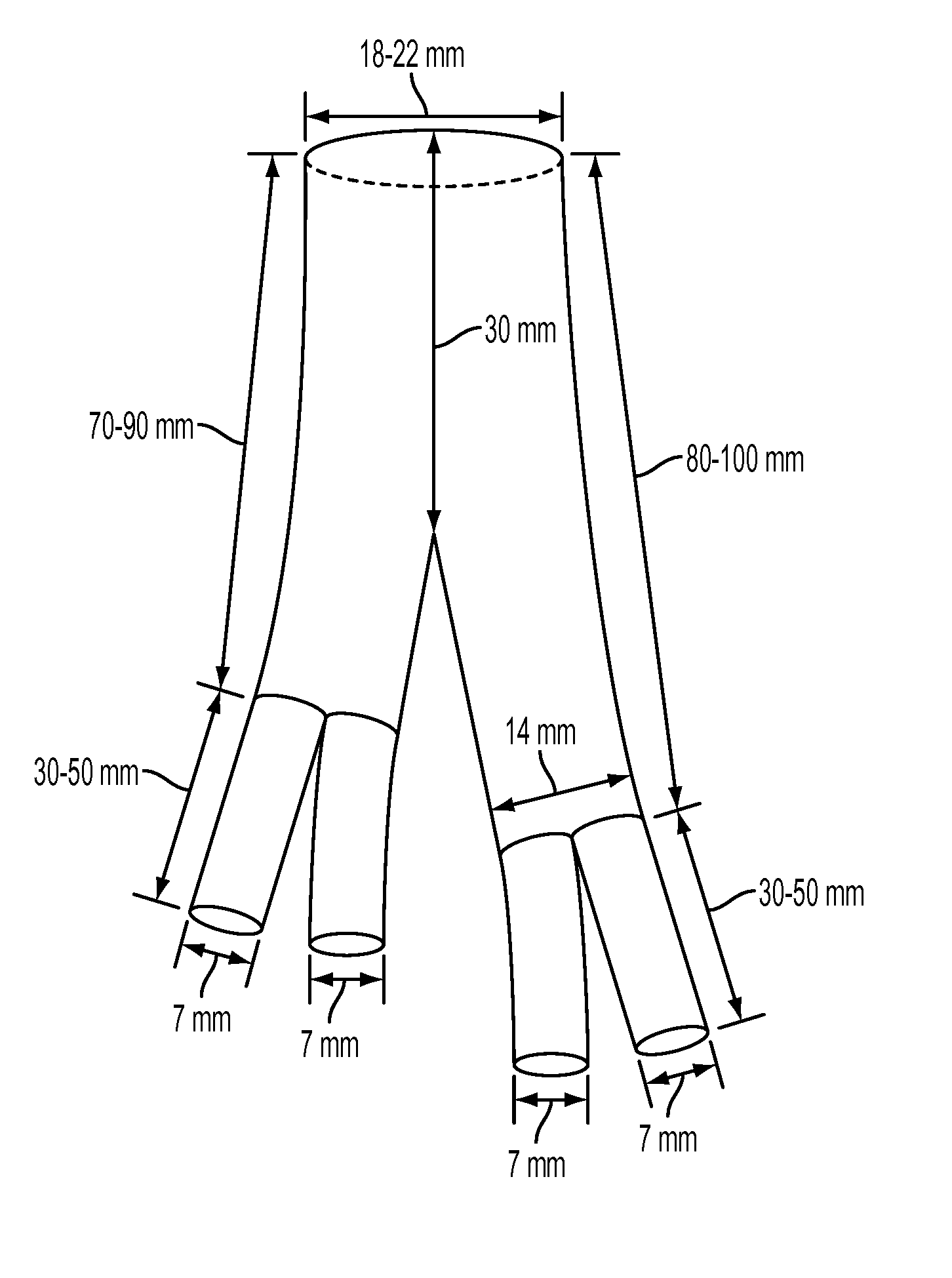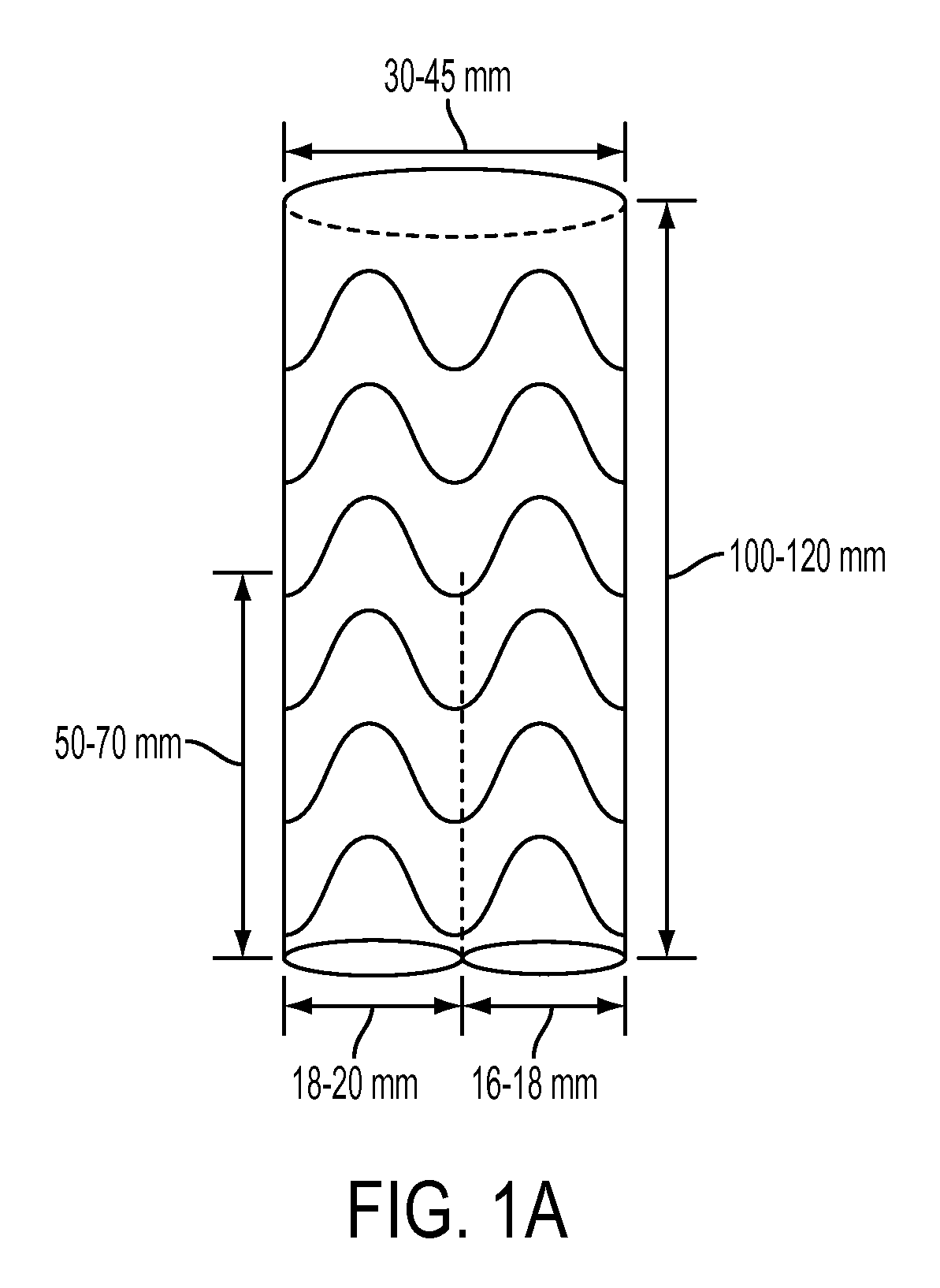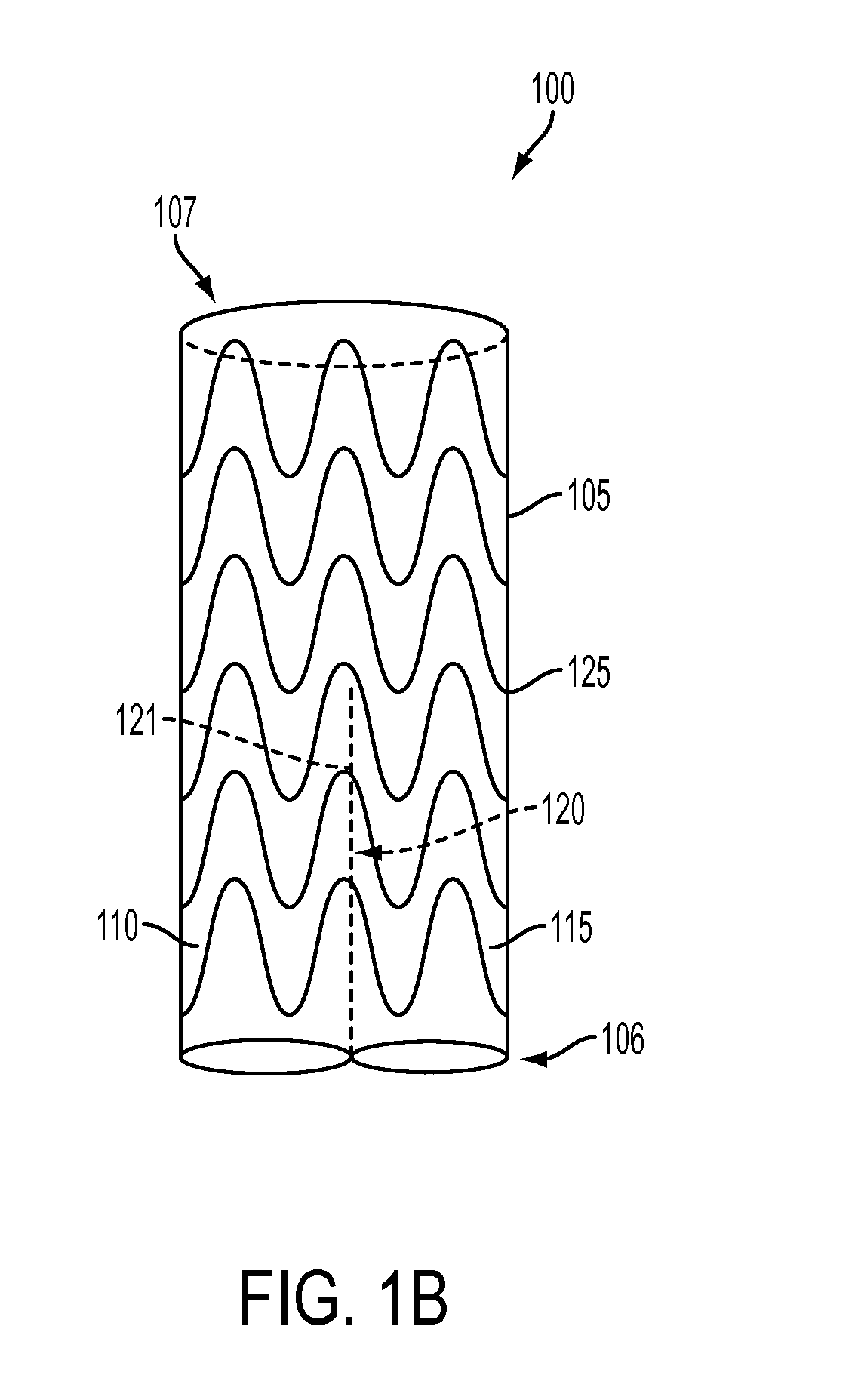Debranching visceral stent graft and methods for use
a technology for branching visceral stents and stents, which is applied in the field of branching visceral stent grafts and methods for use, can solve the problems of inability to achieve precise placement of stent grafts, time-consuming and laborious operation, and achieves the effect of reducing surgical impact on patients, increasing surgical options, and maintaining blood flow
- Summary
- Abstract
- Description
- Claims
- Application Information
AI Technical Summary
Benefits of technology
Problems solved by technology
Method used
Image
Examples
example 1
Endovascular De-branching of a Thoraco-Abdominal Aneurysm
[0236]The ultimate vascular procedure is the open repair of the Thoracic Abdominal Aneurysm (TAA). The undertaking of such a procedure, is a challenge for the surgeon, surgical team, the institution where these procedures are performed, but none of this compares to the challenge the patient and their family endures to recover from such an invasive procedure.
[0237]There have been several surgical approaches to this procedure. There are only a few sites in the country that can offer an open TAA repair with acceptable complication rates. A newer surgical approach is de-branching, with either concurrent or delayed stenting. This approach may have reduced many of the major complication rates but has its own other major complications. Any surgeon performing this surgery understands that this is a very arduous surgery and the patient has a very challenging recovery. A fenestrated stent grafting is newer, less invasive method for repa...
example 2
Endovascular De-branching of a Thoraco-Abdominal Aneurysm
[0244]Endovascular repair of infra-renal abdominal aneurysms has become an accepted alternative to traditional open surgical repair. These techniques allow for shorter hospital stays following a less invasive procedure and initially reduced morbidity and mortality in patients. However, endovascular repair using stent grafts has been slow to overtake open surgical repair as the standard treatment for thoracoabdominal aortic aneurysms (TAA) due to anatomical restrictions and the high cost of custom stent grafts to accommodate individual aneurysm cases. The case presented here represents a method of endoluminal repair of TAA.
[0245]With the patient under general anesthesia, standard groin and right axillary incisions were made, exposing the vessels. This allowed the right / left common femoral arteries to be accessed with a 5 French sheath and measuring pigtail catheter to allow for angiograms to be performed to define the patient's...
example 3
Endovascular De-branching of a Thoracic Aneurysm
[0253]The patient is a 47-year-old female who presented with a symptomatic thoracic dissection with large thoracic aneurysm, type A dissection, with unfortunate significant aneurysmal changes throughout the entire length down into her iliac artery. Her visceral segment came off of a true lumen.
[0254]The patient was placed in a supine position and the neck, chest, arms, and groins were prepped and draped in a normal sterile manner. The left common, internal and external carotid arteries were dissected out with a longitudinal incision in a standard manner and circumferentially controlled. A longitudinal incision was made over the brachial artery and dissected down to the left brachial artery with circumferential control. A vertical incision was made in both the right and left groin, dissected down to the common femoral, deep femoral, and superficial femoral arteries with circumferential control. The focus then shifted to the patient's ri...
PUM
 Login to View More
Login to View More Abstract
Description
Claims
Application Information
 Login to View More
Login to View More - R&D
- Intellectual Property
- Life Sciences
- Materials
- Tech Scout
- Unparalleled Data Quality
- Higher Quality Content
- 60% Fewer Hallucinations
Browse by: Latest US Patents, China's latest patents, Technical Efficacy Thesaurus, Application Domain, Technology Topic, Popular Technical Reports.
© 2025 PatSnap. All rights reserved.Legal|Privacy policy|Modern Slavery Act Transparency Statement|Sitemap|About US| Contact US: help@patsnap.com



